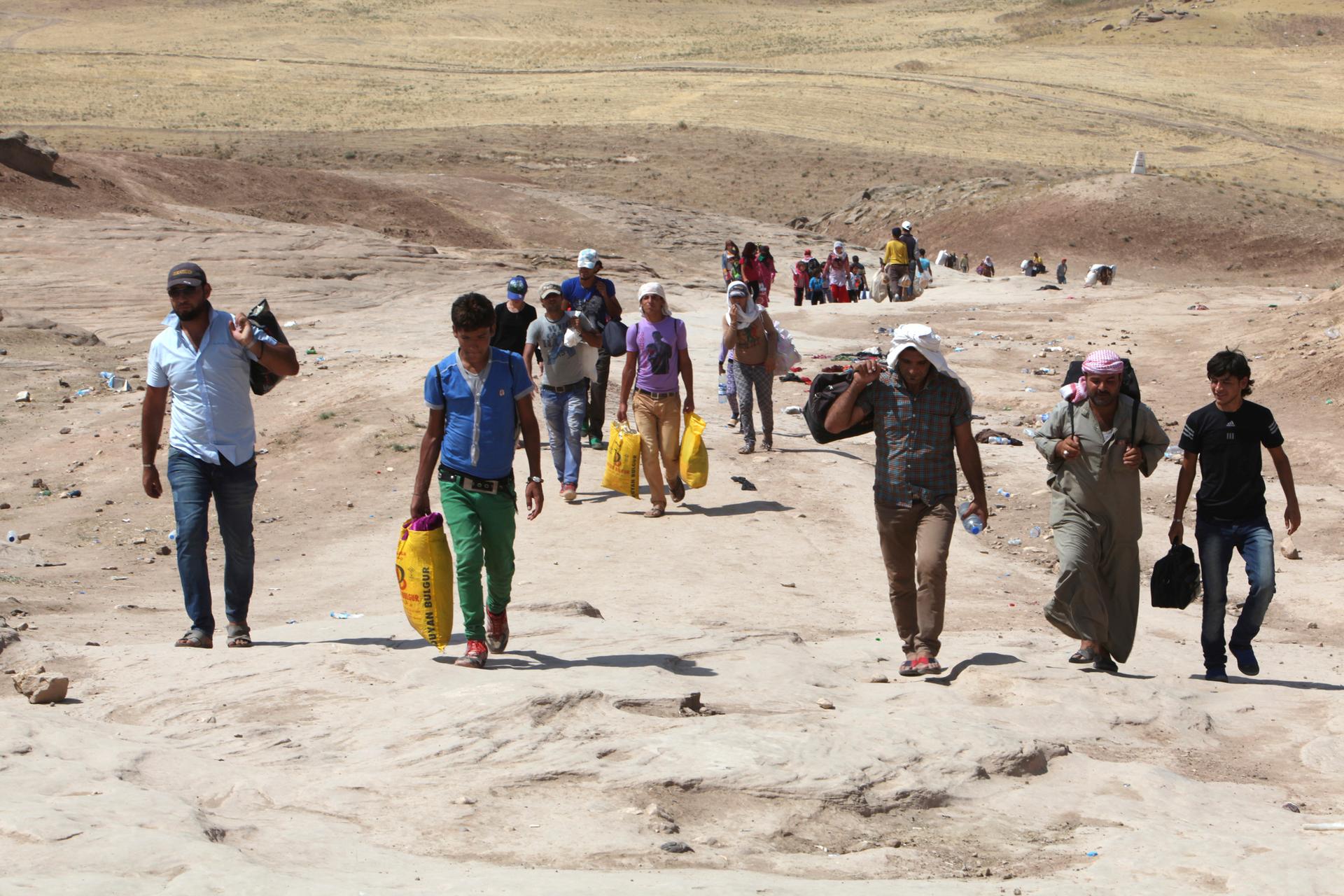Syrians who once took in Iraqi refugees find the tables have turned
Syrian refugees cross the border into the autonomous Kurdish region of northern Iraq, August 19, 2013.
It comes naturally to many of us: you see a neighbor in need, you help out.
That's what Syrians did when the war in Iraq was at its peak. They took in refugees, strangers fleeing their homes.
One Syrian woman called Suhad recalled how she received a call from a distant cousin in Iraq telling her they wanted to come to Syria.
"They arrived with not only their family but with their unrelated neighbors," says reporter Anna Therese Day, who spoke to Suhad.
They were 11 people altogether — and Suhad's family took them all in.
"For them, it wasn't a question of 'why did we take them in, but how could we not,'" Day says.
This sentiment is something that Day comes across regularly in the Middle East. "Part of Islam is that if a stranger comes to your door, you welcome them as guests," she says.
But fast forward a few years and the tables have turned. This time Syrians are the ones in need of help. With their own country facing a bloody civil war, many were forced to flee. According to UN numbers, there are about 200,000 Syrian refugees in Iraq now, although that might change soon because Iraq is becoming increasingly dangerous and unsettled.
What's heart-breaking, according to Day, is that these Syrians never envisioned their own country facing a civil war.
"Syria was once an economic and cultural center, a point of tourism," she says, "so these people never imagined their country becoming the new Iraq."
With the Islamist State of Iraq and Syria (ISIS) gaining ground in Iraq, Syrians, as well as Iraqis are on the move again.
Day says she doesn't want to sound alarmist but "we're already seeing a mass displacement."
"I think that Americans need to show shared human outrage with [these] civilians who are suffering," but if not that, at least "think of our own interest, which is national security."
It comes naturally to many of us: you see a neighbor in need, you help out.
That's what Syrians did when the war in Iraq was at its peak. They took in refugees, strangers fleeing their homes.
One Syrian woman called Suhad recalled how she received a call from a distant cousin in Iraq telling her they wanted to come to Syria.
"They arrived with not only their family but with their unrelated neighbors," says reporter Anna Therese Day, who spoke to Suhad.
They were 11 people altogether — and Suhad's family took them all in.
"For them, it wasn't a question of 'why did we take them in, but how could we not,'" Day says.
This sentiment is something that Day comes across regularly in the Middle East. "Part of Islam is that if a stranger comes to your door, you welcome them as guests," she says.
But fast forward a few years and the tables have turned. This time Syrians are the ones in need of help. With their own country facing a bloody civil war, many were forced to flee. According to UN numbers, there are about 200,000 Syrian refugees in Iraq now, although that might change soon because Iraq is becoming increasingly dangerous and unsettled.
What's heart-breaking, according to Day, is that these Syrians never envisioned their own country facing a civil war.
"Syria was once an economic and cultural center, a point of tourism," she says, "so these people never imagined their country becoming the new Iraq."
With the Islamist State of Iraq and Syria (ISIS) gaining ground in Iraq, Syrians, as well as Iraqis are on the move again.
Day says she doesn't want to sound alarmist but "we're already seeing a mass displacement."
"I think that Americans need to show shared human outrage with [these] civilians who are suffering," but if not that, at least "think of our own interest, which is national security."
